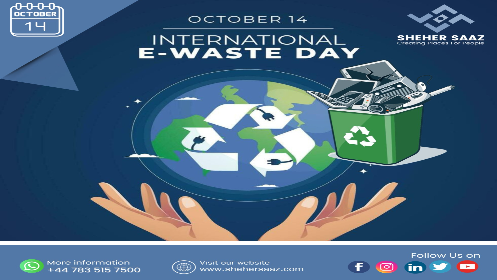Today, on International E-Waste Day , let’s reflect on the growing problem of electronic waste and its impact on urban environments. The volume of e-waste generated globally in 2023 reached over 57 million tonnes , but only 17.4% of it is recycled, leading to alarming environmental and health consequences.
In urban areas, the management of e-waste is particularly critical. Take the case of Agbogbloshie, Ghana —a stark example of e-waste mismanagement where discarded electronics are informally processed, releasing toxic chemicals into the air and water. Conversely, places like Singapore and Switzerland have implemented efficient recycling frameworks. Singapore’s “Extended Producer Responsibility” (EPR) scheme has dramatically improved e-waste recycling rates, ensuring that manufacturers are accountable for the waste their products create.
Urban planning, sustainable architecture, and master planning need to integrate solutions for efficient waste management, recycling facilities, and education for communities on responsible e-waste disposal. Forward-thinking design plays a key role in shaping cities that can manage the flow of discarded electronics while protecting human health and the environment. Let’s pledge to support initiatives that focus on circular economy models, from product design to waste disposal.





